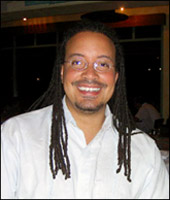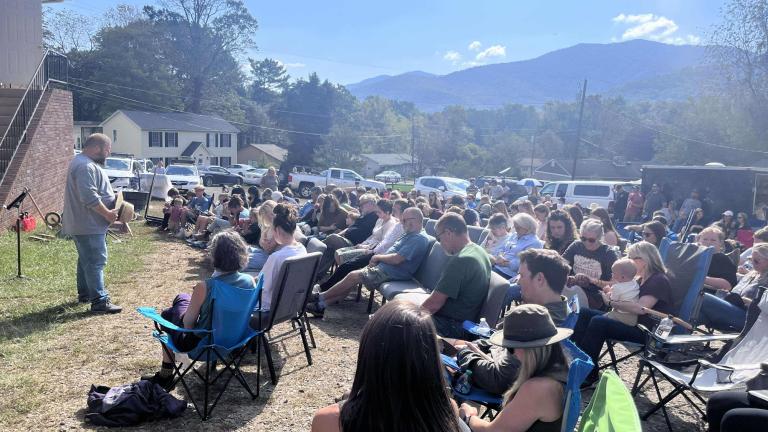
Thursday, 3 Mar 2005
SAN FRANCISCO, Calif.
The Asian Pacific Environmental Network was invited to speak on a panel yesterday with “Death of Environmentalism” coauthor Michael Shellenberger, Taj James, executive director of the Movement Strategy Center, and Adam Werbach, past president of the Sierra Club. The goal was to broaden the debate about the future of the environmental movement that was ignited by Shellenberger and Ted Nordhaus’ recent paper. The room at the World Affairs Council was packed with a couple hundred people, primarily activists, organizers, and funders whose question was, “Now what?”
In contrast to the eruption at the Environmental Grantmakers Association conference where the Shellenberger-Nordhaus paper was first presented, there was little argument about the shortcomings of the national environmental establishment and the weak state of the movement. Adam Werbach asked, “Who here thinks the environmental movement needs to change dramatically over the next years?” Every hand in the room shot up.
We all know things are terribly wrong, that the frameworks of liberalism and environmentalism have failed, and that no social movement — environmental, labor, racial justice, women, LGBT — is being spared from the right’s consolidation of power. People were hungry to hear new ideas and new approaches to solving environmental problems and building broad-based progressive alliances.
The questions Shellenberger is asking are the right ones. But the solutions he and other progressive environmentalists are offering — progressives taking over the Democratic Party and groups like the Sierra Club, values-based messaging that focuses on jobs and health care, and Shellenberger’s Apollo Project, meeting environmental and economic objectives through business development of a clean-energy industry — still lack an adequate race or class analysis. “Who’s going to benefit from the new green industry? Will the hierarchy stay the same when the change comes?” asked Ibrahim Abdul-Matin of the Movement Strategy Center.
If we are in agreement that things need to dramatically change, it can’t just involve the usual suspects. Taj James noted that while Shellenberger managed to piss off a lot of mainstream environmentalists by declaring their irrelevance, he pissed off a bunch of other groups for not even acknowledging their existence. Michael Gelobter, executive director of Redefining Progress, and recent pieces in Grist have been noting, in particular, the absence of communities of color and environmental-justice (EJ) groups. Diverse constituencies must be involved to help define a new progressive agenda.
And for communities of color and the environmental-justice movement, the critique Shellenberger offers of the mainstream national environmental movement is nothing new. As an EJ organization, APEN has been asking and responding to these questions for more than 10 years, among our members and with local, national, and international allies working in grassroots communities of color and indigenous nations. We believe that those most affected — people of color and poor people nationally and internationally — are critical to shaping the vision and strategies to achieve true sustainability and equity.
Shellenberger’s call to “bury the word environment” had white folks taking notice, if not quite listening to each other. Ironically, the EJ movement has been leading the call to expand the definition and place people squarely back into the environment since the First People of Color Environmental Leadership Summit in 1991. In the best-case scenario, this controversial debate will open new spaces for diverse leadership and vision, and progressive environmentalists will see the opportunity for EJ groups to apply their alliance-building experience with labor and faith-based groups. But this new movement will require a shared vision and leadership that does not replicate former power dynamics.
So where do we go from here? While we start to redefine our movement’s vision and strategy — whether we are an environmental organization with a $50 million budget, a community-based organization with a $300,000 budget, an individual activist, or a foundation — we need to ask ourselves what our role has been in this collective “stuckness.”
We start where we’re at, and build from there. There are very real material reasons for the state of progressive movements, and while they shouldn’t keep us from moving forward, they need to be factored into new approaches.
- Real wages continue to fall, but the cost of living continues to rise. Jobs, living wages, and affordable health care and housing are primary concerns.
- At a time when the need for our work expands, funding has contracted. Progressive organizations have been forced to significantly cut budgets or close doors. But they haven’t been hit equally, and we need to reexamine how resources are distributed throughout the movement to build diverse progressive institutions.
- Bringing different communities and sectors together takes skill, trust, and patience. We need to create a shared vision, language, and principles to struggle together politically.
And as much as the new strategy has to appeal to values that speak to average people, we also need to be concerned about transforming worldview. Why should someone care about eviction if they’re a homeowner? Why should you care about another community’s toxic exposure if you’re not living there? Political education and leadership development to get beyond self-interest is essential for the long-term. Building relationships with people and communities will allow for principled political struggle and real alliances. And we need long-term investment of resources to build this progressive infrastructure.
We hope that this series of earthquakes, culminating in the Big One — the loss of the 2004 election — has created a new opening in the landscape. Folks want to figure out where to go from here, as the long lines at the mikes throughout the discussion attested.
APEN has always operated within a movement-building context. None of us can go it alone if we’re talking about transforming the world. And we’re ready to build from here.

